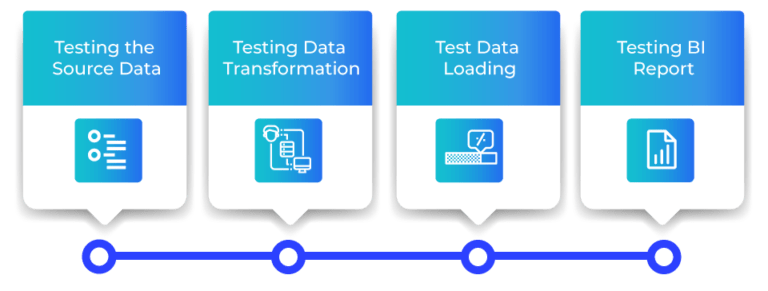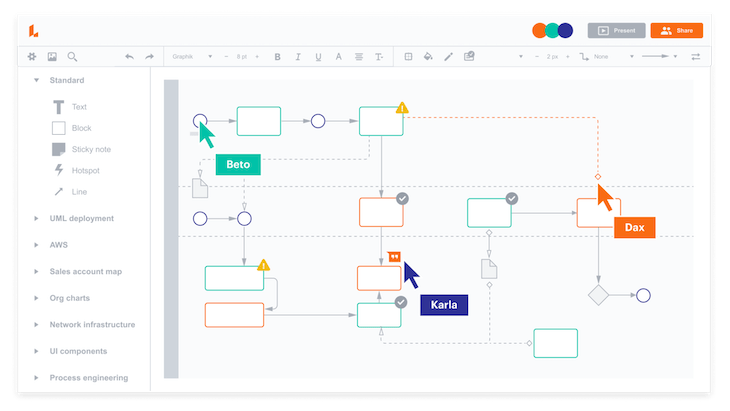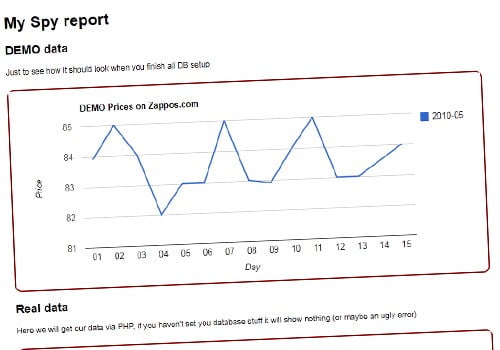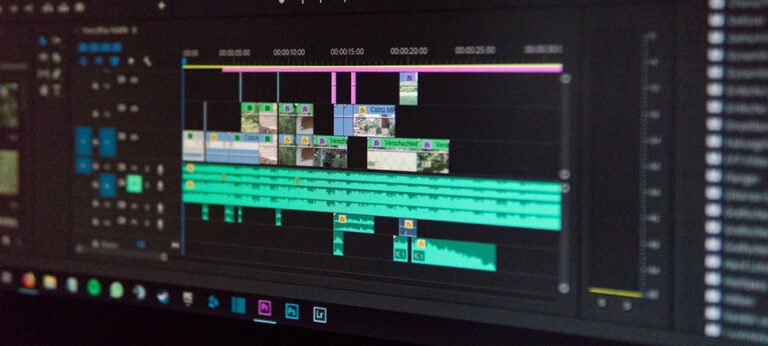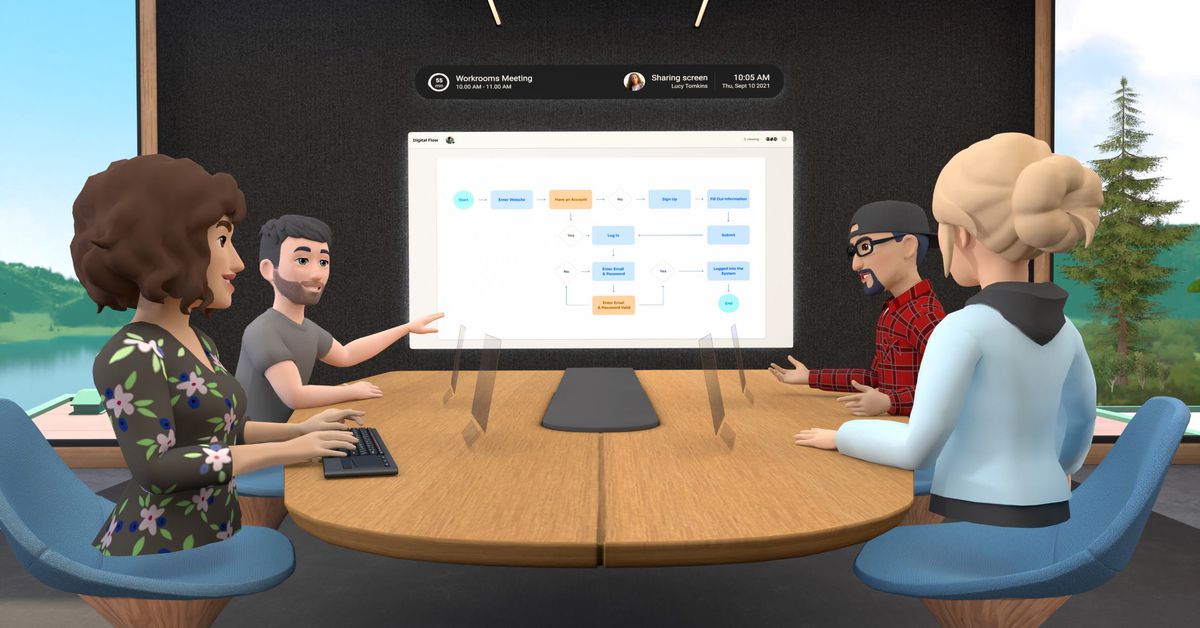
With no end to the Covid-19 pandemic in sight, it looks like many of us may be working home for even longer than we initially imagined.
Facebook is capitalizing on that with the release of its new virtual reality office meeting software, Horizon Workrooms. The idea is that you can interact with your colleagues remotely in a simulated, 3D conference room, complete with cartoon avatars, “spatial sound,” and hand motion tracking. Think of it like Zoom on steroids. For now, the software is free to use, and anyone can join by dialing in to video call — but to get the full experience, you’ll need one of Facebook’s Oculus 2 headsets. Facebook says the Oculus-powered version of Workrooms has already been used widely within the company for the past six months.
“Workrooms is our flagship collaboration experience that lets people come together to work in the same virtual room, regardless of physical distance,” the company said in a press release announcing the launch.
The new product is another sign that Facebook is investing heavily in its VR- and AR-filled “metaverse,” which CEO Mark Zuckerberg recently described as an “embodied internet” where people communicate through digital representations of themselves. Facebook recently created an executive team to build out the metaverse, and as of last March, nearly a fifth of the company was working on AR or VR, according to the Information.
Zuckerberg — along with many other leaders in tech — views AR and VR as the next frontier in computing, akin to the mobile phone.
But so far, the technology has only really taken off among gamers. So it makes sense that the company is building a product that aims to make the technology more useful for a mainstream audience. A spokesperson for Facebook noted that Zuckerberg himself has hosted meetings using Workrooms.
Facebook isn’t the first company to come up with the idea of VR-powered office meetings. Spatial, which Recode’s Adam Clark Estes wrote about last year, offers a lot of the same features as Workrooms, raising familiar questions about whether Facebook is copying some of its smaller competitors. And while early adopters may love the idea of using cutting-edge technology to make virtual office meetings less dull, it could be years before the average person uses VR for entertainment, let alone for work.
Still, Workrooms is trying to leverage an interesting new technology at just the right time. Many office workers are burned out after a year and a half of working from home and for a return to a more normal office setting — or the next best thing.
[embedded content]
How Workrooms works
When you’re in a Horizon Workrooms meeting, the idea is that it should feel almost like you’re actually in the same physical space as the other people in the room.
Recode hasn’t yet tried out the product, but based on what we know from Facebook’s demo videos and product descriptions, participants are supposed to experience a kind of “mixed reality,” which combines aspects of the virtual world with the real one — for example, you can still type on your actual computer keyboard and have that register in the simulated meeting room. Once you’re in the meeting room, you can do all the things you’d do in a regular videoconference, but with some enhancements. For example, you can collaborate on a virtual whiteboard, which you can write on using hand gestures (which the Oculus headset tracks) or an Oculus handheld controller.
Everything is supposed to feel much more like the real world than in a traditional videoconference. You can project your notes onto a board in the front of the virtual room, and using a technology called “spatial sound,” you can hear people better when you tilt your head toward them.
While there’s a lot of promise for Facebook’s workrooms app, there are also significant hurdles.
Facebook’s biggest hurdle with Workrooms is a simple logistical one: Most people don’t have an Oculus Quest 2 headset. The cost of the $300 hardware will undoubtedly be a barrier for many potential users to access the full experience.
Aside from that, there are also potentially major privacy concerns about people giving Facebook more data. Facebook has said that it will not use the conversations you have in Workrooms to inform ads on Facebook, and that the technology will only process images of your home environment locally. But given the company’s controversial track record on protecting user privacy, it may be hard to convince people to let Facebook into their lives more than they already have.
Facebook has also struggled so far to get people invested in metaverse-ready products. Spaces, the company’s previous attempt at a virtual environment, was geared toward social conversations, but it never took off and is now defunct. Facebook has, however, seen some success with its messaging app for work, Workplace Messenger. And virtual reality technology has become much more accessible since then, with the price of headsets dropping from a price point of a few thousand dollars to a few hundred.
Facebook’s Workrooms app is a foundational step in the company’s grand “metaverse” vision. And whether or not people actually want to participate in this new world, Facebook’s CEO is extremely excited about it.

